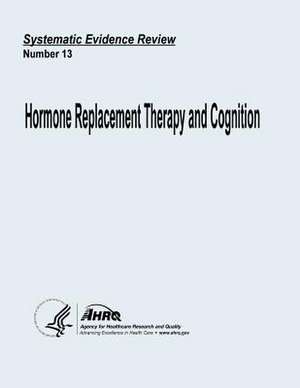Hormone Replacement Therapy and Cognition
Autor U. S. Department of Heal Human Services, Agency for Healthcare Resea And Qualityen Limba Engleză Paperback
Preț: 111.31 lei
Preț vechi: 117.17 lei
-5% Nou
Puncte Express: 167
Preț estimativ în valută:
21.30€ • 22.10$ • 17.80£
21.30€ • 22.10$ • 17.80£
Carte disponibilă
Livrare economică 22 februarie-08 martie
Preluare comenzi: 021 569.72.76
Specificații
ISBN-13: 9781490565668
ISBN-10: 1490565663
Pagini: 90
Dimensiuni: 216 x 279 x 5 mm
Greutate: 0.23 kg
Editura: CREATESPACE
ISBN-10: 1490565663
Pagini: 90
Dimensiuni: 216 x 279 x 5 mm
Greutate: 0.23 kg
Editura: CREATESPACE
